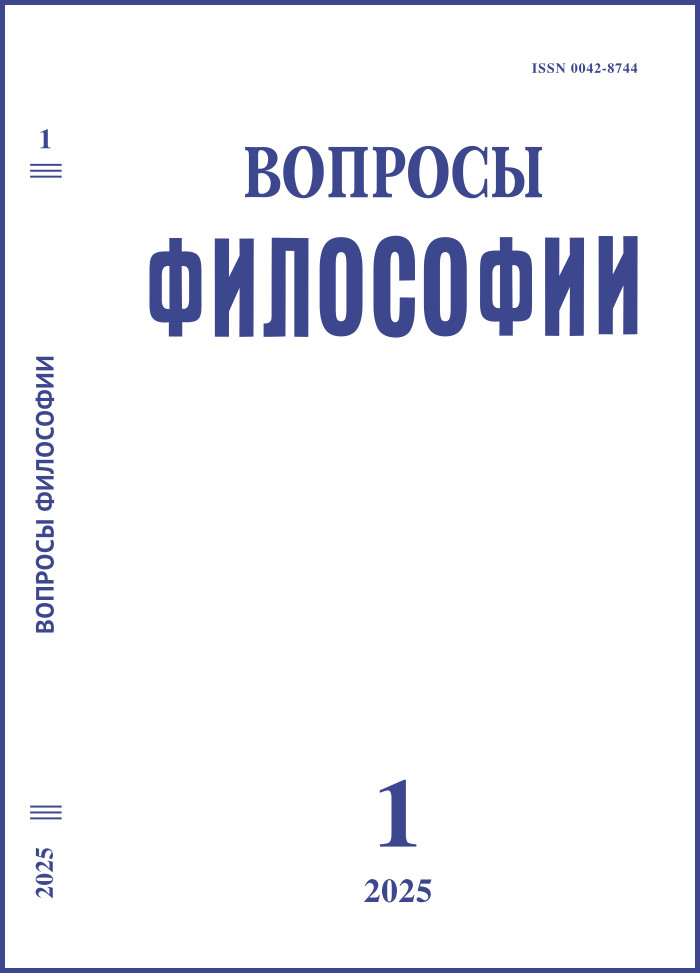Triumph of the Inhuman, or Taedium Vitae of the “End of History”
DOI:
https://doi.org/10.21146/0042-8744-2025-1-34-50Keywords:
man, melancholy, depression, despondency, fatigue of being human, taedium vitae, society of fatigue, “end of history”, posthumanism, digital immortality, mortality, gender, capitalism, existential crisis, moralityAbstract
The era of the “end of history” is marked by the unprecedented cultivation of various forms of the non-human. From post- and transhumanist ideology to digital immortality, there is a clear rejection of traditional anthropology, which is based on a mortal and bisexual person who spiritually and morally overcomes his limitations. This rejection of the human is considered in our article as a new phase of the existential crisis, which is based on the phenomenon of “fatigue of being human”. This crisis is interpreted as a form of melancholy in which the traditional taedium vitae, the vector of which is always fatigue from life (external or internal), is first directed against the human form of life as imperfect and generally unsuccessful, requiring radical restructuring with the help of biotechnology. The article traces the evolution of this transformation of melancholy from biblical despondency and Baudelaire’s all-consuming boredom to the capitalist society of fatigue. Melancholy in the “era of emptiness” and in the situation “after the death of God” has lost its greatness as a marker of special selectivity, sophistication and fragility of the spiritual organization, becoming an indicator of the psychological exhaustion of a person working hard for unknown purposes. So melancholy becomes depression, which in its modern phase does not mean the loss of the meaning of life, as in traditional logotherapy, but the loss of desire, will and courage to be human.

